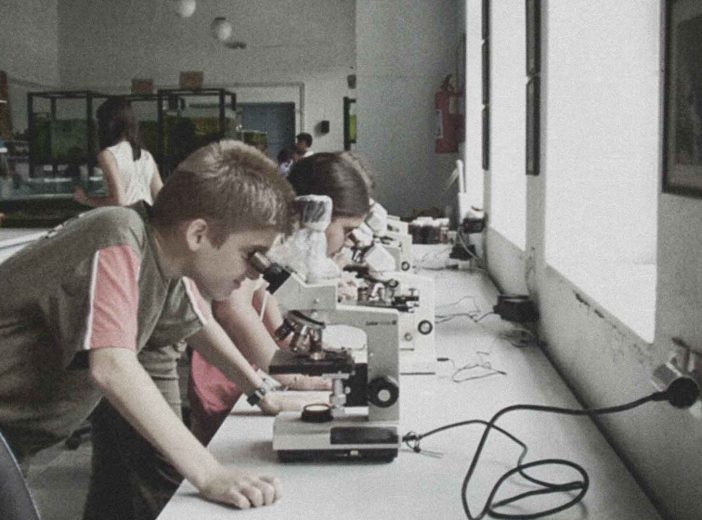The Center for Environmental Education is housed in the old, stone-built school house in Neochori. The center promotes the scientific exploration of the natural and man-made environment through environmental education programs. It includes laboratory and audiovisual equipment for education and research in the fields of terrestrial, forest and lake ecosystems.
The center is an environmental infrastructure for the monitoring and management of the environment in the Lake Plastira region. It implements programs for the monitoring and management of the region’s natural environment; one of its main activities is the implementation of Environmental Education programs, which are addressed primarily to students in primary and secondary education, as well as students of Technical Educational Institutes and universities. It can implement several educational activities (projections, speeches, laboratory and field experiments), towards the goal of promoting environmental education and the cultivation of eco-consciousness in the public at large. Its programs are oriented along the themes of “water – wetlands” and “terrestrial ecosystems”.
The Center’s programs are addressed primarily to organized groups, but it also offers reliable and comprehensive environmental information to individual visitors who wish to learn about the region’s natural environment and the value of its terrestrial and water ecosystems.
The Center has contributed not just to the education of numerous visitors (primarily students of all levels), but also to the promotion of the Lake Plastira area. Together with the Botanical Garden in Neochori, they constitute important environmental infrastructures that give visitors the opportunity to discover the area’s rich ecosystems, to learn about their significance, and to be trained in their protection.
The Municipality of Lake Plastira, in promoting sustainable development and the protection of the area, supports these structures, in collaboration with expert personnel who are in charge of implementing the educational programs and guided tours.
The Center for Environmental Education and the Botanical Garden are not open only to students, but also to environmental and ecological organizations, and to anyone who wishes to learn about the area and its natural resources.






